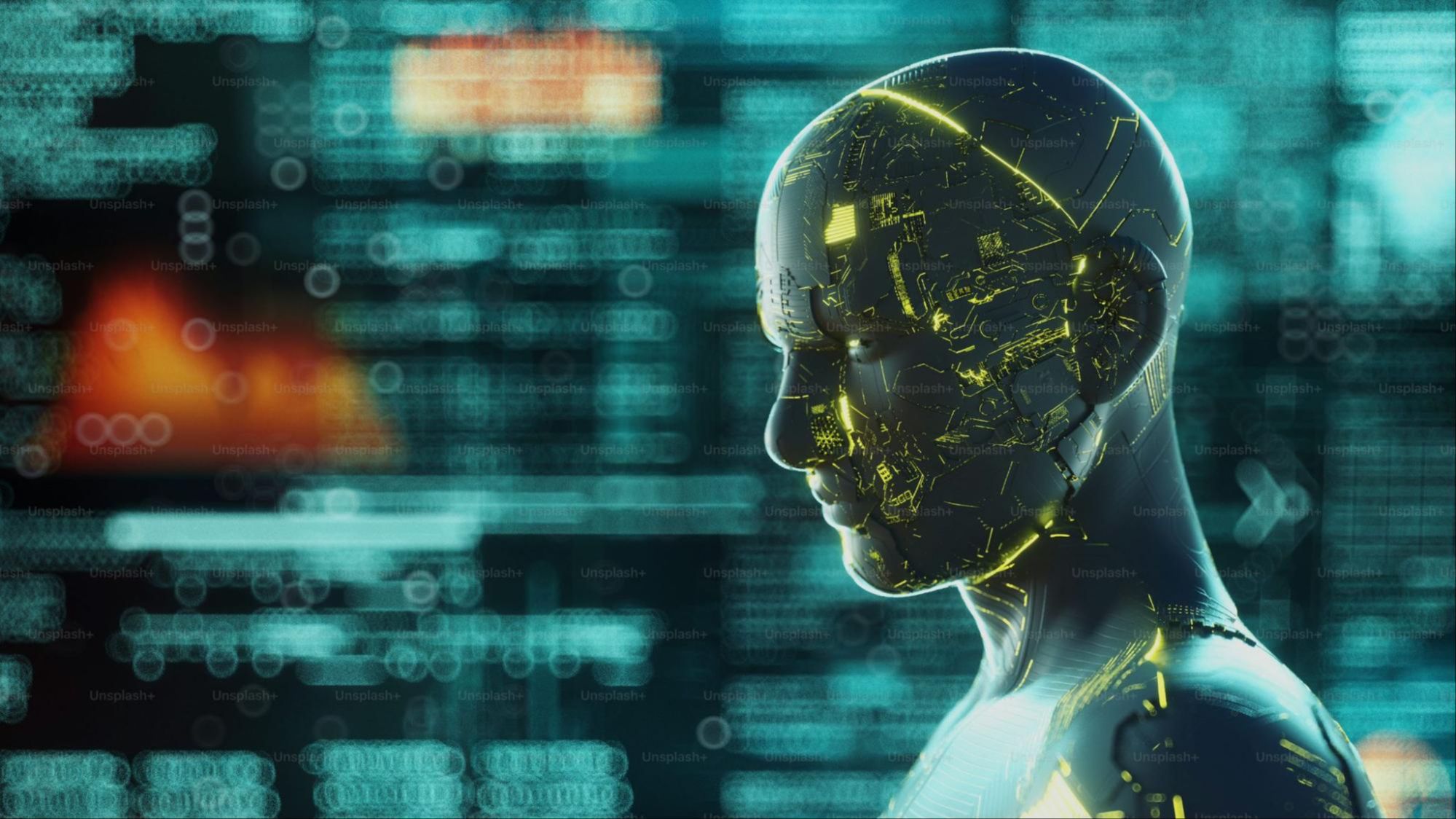Key Ethical and Responsible AI Questions
Jan 29, 2025
Understanding the Importance of Ethics in AI
As artificial intelligence continues to evolve rapidly, the significance of integrating ethical considerations into its development and implementation cannot be overstated. Ethics in AI deals with the moral dilemmas and responsibilities that arise from the use of intelligent systems. The need for a strong ethical framework becomes apparent when we consider both the capabilities and the potential consequences of AI technologies. With the increasing reliance on AI in critical areas such as healthcare, finance, and law enforcement, the stakes are higher than ever. Misguided AI applications can lead to significant societal harm, including discrimination, invasion of privacy, and the erosion of trust in institutions.
Defining Ethical AI
Ethical AI refers to the creation and application of AI systems that adhere to principles of fairness, justice, accountability, and transparency. This concept encompasses various dimensions, including the adherence to legal standards, respecting individual rights, and promoting societal welfare. Core elements of ethical AI often include:
- Fair treatment of individuals and groups.
- Transparency in AI processes and decisions.
- Accountability for outcomes resulting from AI deployment.
- Respect for user privacy and data protection.
By embedding these principles into AI design, creators can work towards minimizing negative impacts while maximizing societal benefits. Furthermore, fostering an environment where ethical considerations are prioritized can lead to increased public trust in AI technologies. This trust is crucial, as it encourages broader acceptance and adoption of AI solutions across various sectors, ultimately enhancing innovation and progress.
The Role of Ethics in AI Development
The development phase of AI technology presents numerous challenges, wherein ethical considerations must be intertwined with technical decision-making. This includes ensuring that AI algorithms are not just optimized for performance but also consider ethical ramifications. The complexity of human behavior and societal norms makes it essential for developers to engage with interdisciplinary teams, including ethicists, sociologists, and legal experts, to navigate these challenges effectively.
Ethics plays a pivotal role in the development lifecycle of AI, influencing everything from data collection and usage to algorithm training and deployment. A structured approach may involve:
- Incorporating diverse perspectives in the development team.
- Conducting impact assessments to evaluate potential harm.
- Developing guidelines that govern the ethical usage of AI systems.
Ultimately, the role of ethics in AI development evolves as the technology matures, necessitating continuous reflection and adaptation to a changing societal landscape. As AI systems become more autonomous, the ethical implications of their decisions become even more pronounced. For instance, in the context of autonomous vehicles, ethical dilemmas arise regarding decision-making in accident scenarios. Should an AI prioritize the safety of its passengers over pedestrians? Such questions underscore the necessity for ongoing dialogue and the establishment of comprehensive ethical standards that can guide the responsible development and deployment of AI technologies.
The Intersection of AI and Responsibility
Responsibility in AI captures the obligation developers, organizations, and stakeholders have to ensure their technologies are designed and utilized in ways that do not harm individuals or society at large. This intersection of AI and responsibility can foster trust and public acceptance of new technologies.
The Concept of Responsible AI
Responsible AI refers to a framework that emphasizes the ethical use of AI technologies, focusing on accountability and transparency. This concept can manifest in various ways, such as:
- Ensuring that AI systems are audit-able and governable.
- Implementation of ethical guidelines for AI usage.
- Promoting inclusivity and fairness throughout the AI lifecycle.
By adhering to responsible AI principles, organizations can proactively mitigate risks associated with misuse or unintended consequences of AI applications. Furthermore, the notion of responsible AI extends beyond mere compliance; it invites a culture of ethical innovation where the potential societal impacts of AI are considered at every stage of development. This proactive approach encourages developers to think critically about the long-term implications of their creations, fostering a mindset that prioritizes human welfare alongside technological advancement.
AI Responsibility in Practice
The practical application of AI responsibility often involves cross-disciplinary collaboration across legal, technical, and ethical domains. Companies today are increasingly establishing AI ethics boards or committees to oversee the impact and direction of their AI initiatives. These boards often consist of diverse members, including ethicists, data scientists, legal experts, and community representatives, ensuring that a wide range of perspectives is considered in decision-making processes.
Additionally, organizations are increasingly adopting practices that ensure responsible AI usage, such as:
- Regularly reviewing and revising AI protocols.
- Creating clear accountability structures for AI decision-making.
- Engaging with external stakeholders for feedback and evaluation.
The implementation of these practices can enhance the overall credibility of AI systems, fostering a responsible environment that consumers and society can trust. Moreover, the integration of user feedback loops allows organizations to remain agile and responsive to public concerns, adapting their technologies to better serve the needs and values of the communities they impact. This iterative process not only strengthens the relationship between AI developers and users but also cultivates a sense of shared responsibility in shaping the future of AI technology.
Ethical Dilemmas in AI
The advancement of AI technology has led to numerous ethical dilemmas that manifest in various contexts. These dilemmas highlight the need for robust discussions around the moral implications of deploying AI in real-world scenarios. As AI continues to evolve, it becomes increasingly intertwined with societal norms and values, necessitating a careful examination of how these technologies affect human lives.
Privacy Concerns in AI
Privacy issues are paramount in discussions surrounding AI, especially as data-driven technologies increasingly rely on personal information. AI systems that collect and analyze large datasets raise significant questions regarding consent, data ownership, and user autonomy. The proliferation of surveillance technologies and smart devices has further complicated the landscape, as individuals often unknowingly consent to data collection through the use of everyday products.
Some critical aspects include:
- The necessity for informed consent from individuals.
- Securing data against breaches and unauthorized access.
- Transparent data practices that inform users about data usage.
Addressing privacy concerns is essential to maintain public trust in AI technologies and to support the responsible development of these systems. Furthermore, the ethical implications extend beyond individual privacy; they touch on broader societal issues, such as the potential for mass surveillance and the erosion of civil liberties. As AI systems become more pervasive, the dialogue surrounding privacy must evolve to encompass not only personal data protection but also the collective rights of communities.
Bias and Discrimination in AI Systems
Bias in AI systems poses another critical ethical challenge, where algorithms may inadvertently perpetuate stereotypes or discrimination against certain groups. This bias can stem from various sources, such as unrepresentative training data or flawed algorithms. The consequences of biased AI can be severe, affecting critical areas such as hiring practices, law enforcement, and access to healthcare, thereby reinforcing existing inequalities within society.
To mitigate bias, it’s essential to adopt measures including:
- Conducting rigorous bias audits during the AI development process.
- Employing diverse teams to create AI systems.
- Ensuring continuous monitoring to identify and rectify bias in AI outputs.
Addressing bias and discrimination not only improves AI systems but also aligns technology with ethical principles of equality and justice. Moreover, fostering an inclusive approach in AI development can lead to more innovative solutions that reflect the diverse needs of society. Engaging with affected communities and stakeholders in the design and implementation phases can help ensure that AI technologies serve to uplift rather than marginalize, paving the way for a more equitable technological future.
The Future of Ethical and Responsible AI

The future landscape of AI technology will likely be shaped by intensified discussions around ethical implications and regulatory measures. As society grapples with these issues, the call for an ethical AI framework is becoming more pronounced.
Regulatory Measures for Ethical AI
Regulations governing AI use are gaining traction, as governments and international bodies recognize the need to protect citizens from the potential harms of AI technologies. Effective regulations could include:
- Establishing legal frameworks that enforce responsible AI practices.
- Mandating mandatory impact assessments for AI applications.
- Creating penalties for violations of ethical standards.
These regulations aim to ensure that AI operates within an acceptable ethical framework, balancing innovation with safety and societal welfare. Moreover, the establishment of global standards could facilitate international cooperation, ensuring that AI technologies are developed and deployed with a consistent ethical approach across borders. This could help mitigate risks associated with the misuse of AI, such as surveillance, discrimination, and misinformation, fostering a more equitable technological landscape.
The Role of AI Ethics Committees
AI ethics committees serve as vital mechanisms in the oversight of AI technologies. Composed of multidisciplinary stakeholders, these committees can provide valuable insights into the ethical implications of AI decisions and applications.
Some roles of AI ethics committees may include:
- Reviewing AI projects for ethical compliance.
- Advising organizations on best practices for ethical AI.
- Facilitating stakeholder engagement and public discourse.
By fostering transparency and accountability, AI ethics committees can help guide the responsible deployment of AI technologies across various sectors. Additionally, these committees can play a crucial role in educating both developers and the public about the ethical dimensions of AI, promoting a culture of responsibility and awareness. As AI systems become increasingly complex, the need for ongoing dialogue and reflection on ethical practices will be essential to navigate the challenges posed by emerging technologies, ensuring that they serve the greater good while minimizing potential harms.
Concluding Thoughts on Ethical and Responsible AI
The journey towards ethical and responsible AI is complex and necessitates continuous dialogue among technologists, ethicists, policymakers, and the public. The evolving landscape presents an opportunity for all stakeholders to actively engage in discussions that shape the future of AI innovations.
The Need for Ongoing Ethical Discussions
As AI technologies advance, the context surrounding their use will also change. Ongoing ethical discussions are vital to address emerging challenges, allowing society to adapt ethical frameworks to new realities. Engaging diverse voices in these dialogs expands understanding and fosters innovation rooted in ethical practices. For instance, the integration of AI in healthcare raises critical questions about patient privacy, data security, and algorithmic bias. By including healthcare professionals, patients, and ethicists in these discussions, we can ensure that AI applications enhance patient care while respecting individual rights and promoting equitable access to technology.
The Balance Between AI Innovation and Ethics
Finding the right balance between innovation and ethical considerations is a significant challenge facing AI developers and stakeholders. Innovative applications hold tremendous potential for improving lives but must be pursued responsibly to avoid harmful consequences. Achieving this balance requires commitment to ethical leadership and proactive decision-making in the realm of AI. Moreover, organizations must implement robust governance frameworks that not only prioritize transparency and accountability but also encourage a culture of ethical awareness among employees. This can be achieved through regular training and the establishment of ethics committees that oversee AI projects, ensuring that ethical considerations are woven into the fabric of technological advancement.
Conclusion
In conclusion, ethical and responsible AI is crucial for ensuring that technological advancements benefit society while minimizing harm. By fostering transparency, accountability, and fairness, the Human Centered AI Institute leads the way in addressing the complex ethical challenges surrounding AI. Their commitment to ongoing dialogue and interdisciplinary collaboration helps shape a future where AI innovation aligns with societal values and human welfare.





